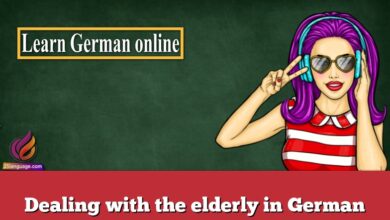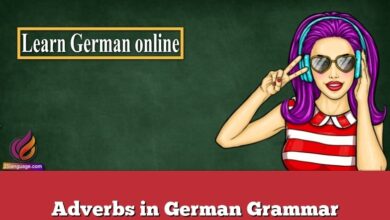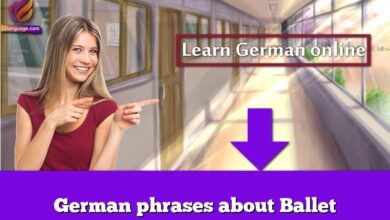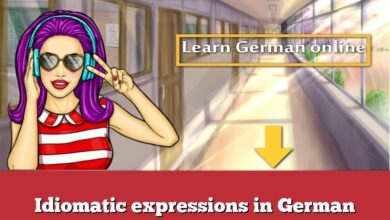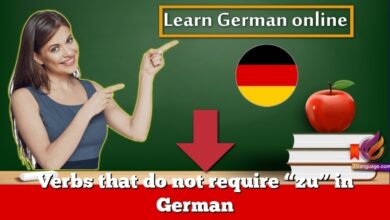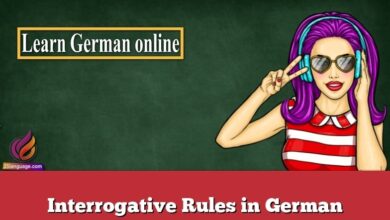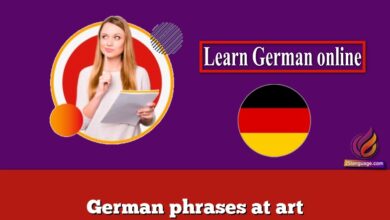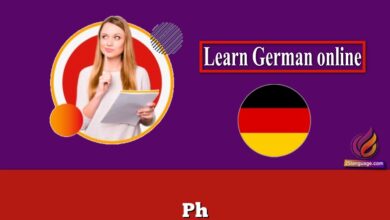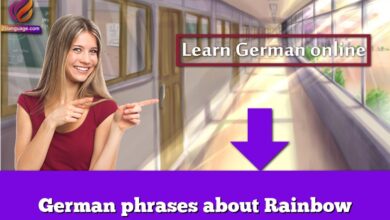Basics of German Grammar
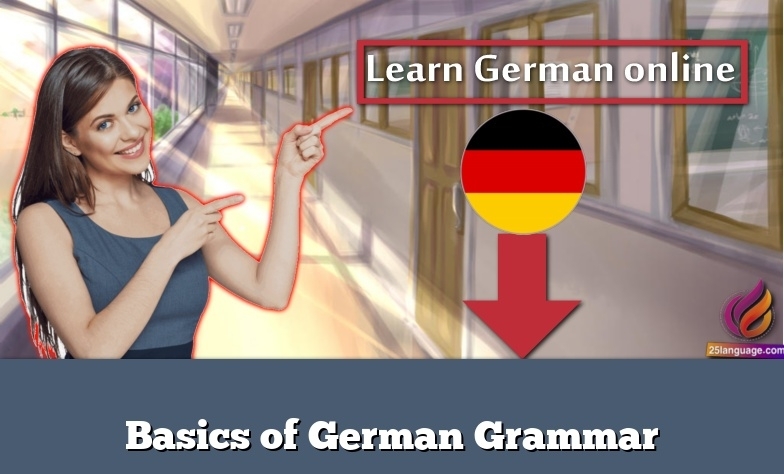
Basics of German Grammar.The phrase “Basics of German Grammar” translates to “Grundlagen der deutschen Grammatik” in German. This title likely refers to an introductory section or guide that covers the fundamental aspects of German grammar, essential for beginners or those new to the language. Key topics often covered in such a section include:
- Nouns and Articles (“Nomen und Artikel”):
- Understanding gender (masculine, feminine, neuter)
- Definite and indefinite articles (der, die, das; ein, eine)
- Pronouns (“Pronomen”):
- Personal pronouns (ich, du, er, sie, es, wir, ihr, sie)
- Possessive pronouns (mein, dein, sein, ihr, unser, euer, ihr)
- Verbs and Conjugation (“Verben und Konjugation”):
- Regular and irregular verbs
- Present, past, and future tenses
- Modal verbs (können, müssen, dürfen, sollen, wollen, mögen)
- Sentence Structure (“Satzstruktur”):
- The order of subject, verb, and object
- Main clauses and subordinate clauses
- Adjectives and Adverbs (“Adjektive und Adverbien”):
- Comparative and superlative forms
- Placement in a sentence
- Prepositions (“Präpositionen”):
- Accusative, dative, and two-way prepositions
- Common prepositional phrases
- Cases (“Kasus”):
- Nominative, accusative, dative, and genitive cases
- Case endings for articles and adjectives
- Negation (“Verneinung”):
- Using “nicht” and “kein”
- Question Formation (“Fragenbildung”):
- Yes/no questions and “W”-questions (who, what, when, etc.)
- Common Phrases and Expressions (“Gängige Phrasen und Ausdrücke”):
- Greetings, farewells, and everyday expressions
This overview provides a solid foundation for anyone starting to learn German, covering the essential elements of its grammar.
Here are some examples illustrating the basics of German grammar, along with their English translations:
- Nouns and Articles (Nomen und Artikel):
- German: Der Hund (The dog)
- English: The dog
- Pronouns (Pronomen):
- German: Ich bin Student. (I am a student.)
- English: I am a student.
- Verbs and Conjugation (Verben und Konjugation):
- German: Sie läuft schnell. (She runs fast.)
- English: She runs fast.
- Sentence Structure (Satzstruktur):
- German: Der Mann liest ein Buch. (The man reads a book.)
- English: The man reads a book.
- Adjectives and Adverbs (Adjektive und Adverbien):
- German: Das große Haus. (The big house.)
- English: The big house.
- Prepositions (Präpositionen):
- German: Wir gehen in die Schule. (We go to school.)
- English: We go to school.
- Cases (Kasus):
- German: Ich gebe dem Mann das Buch. (I give the man the book.)
- English: I give the man the book.
- Negation (Verneinung):
- German: Ich habe kein Auto. (I don’t have a car.)
- English: I don’t have a car.
- Question Formation (Fragenbildung):
- German: Wo wohnst du? (Where do you live?)
- English: Where do you live?
- Common Phrases and Expressions (Gängige Phrasen und Ausdrücke):
- German: Guten Morgen! (Good morning!)
- English: Good morning!
These examples provide a glimpse into the fundamental aspects of German grammar, showcasing how different elements are used in simple sentences.
Phrases
Certainly! Here are some basic phrases in German with their English translations, focusing on essential grammar concepts:
- Nouns and Articles
- Der Hund (The dog)
- Die Katze (The cat)
- Das Buch (The book)
- Simple Present Tense
- Ich gehe (I go)
- Du liest (You read)
- Er/Sie/Es schläft (He/She/It sleeps)
- Negation
- Ich habe kein Geld (I have no money)
- Sie ist nicht hier (She is not here)
- Wir machen das nicht (We are not doing that)
- Questions
- Wo bist du? (Where are you?)
- Wie alt bist du? (How old are you?)
- Was machst du? (What are you doing?)
- Modal Verbs
- Ich kann schwimmen (I can swim)
- Du sollst lernen (You should study)
- Wir möchten essen (We would like to eat)
- Past Tense
- Ich ging (I went)
- Du hattest (You had)
- Sie kochte (She cooked)
- Future Tense
- Ich werde sehen (I will see)
- Du wirst lernen (You will learn)
- Er wird kommen (He will come)
- Prepositions
- Auf dem Tisch (On the table)
- Unter der Brücke (Under the bridge)
- Mit meinem Freund (With my friend)
- Adjectives
- Das schnelle Auto (The fast car)
- Ein rotes Buch (A red book)
- Schönes Wetter (Beautiful weather)
- Plural Forms
- Die Hunde (The dogs)
- Die Bücher (The books)
- Die Kinder (The children)
These phrases cover a range of basic grammatical structures in German and should be a good starting point for learning the language.
